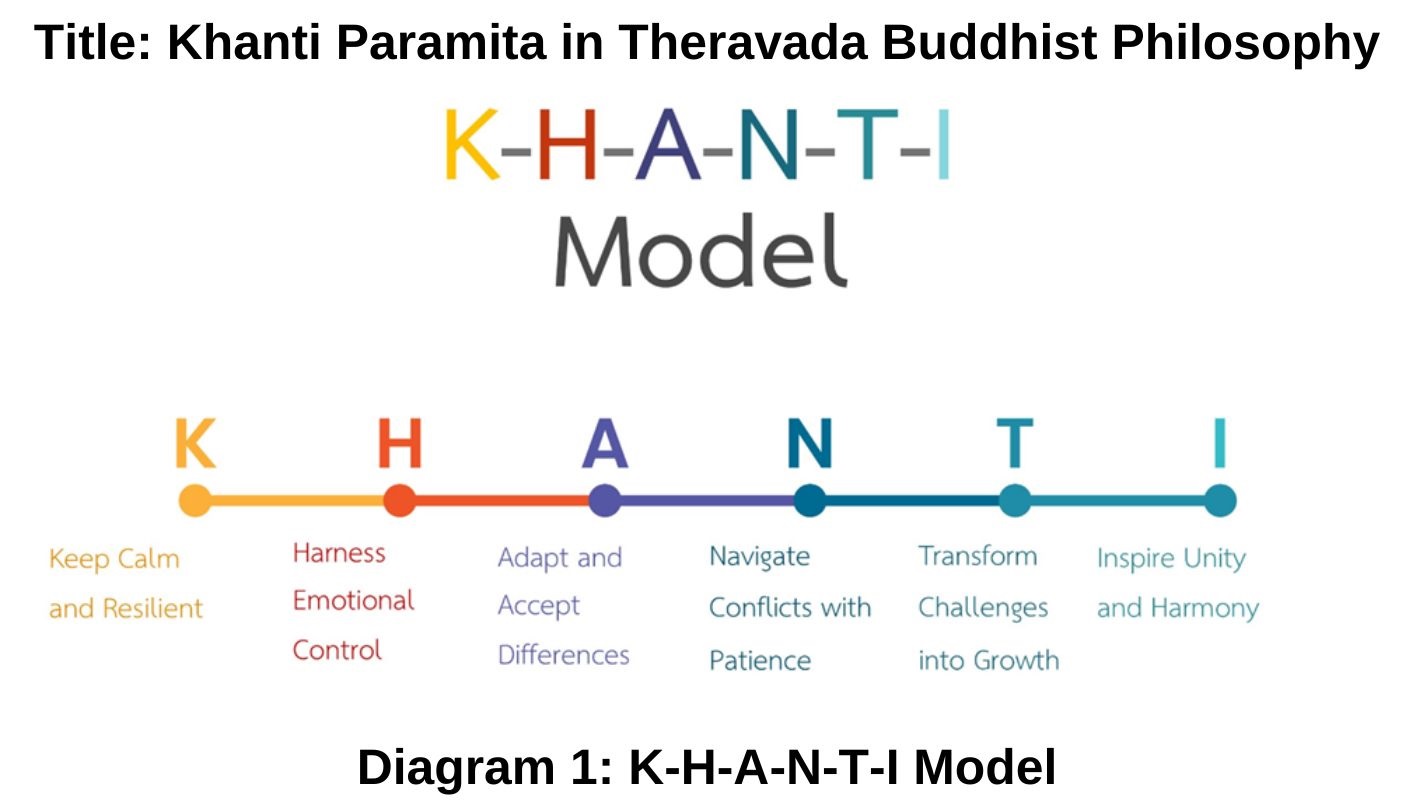Khanti Paramita in Theravada Buddhist Philosophy
Keywords:
Khanti, Paramita, Khanti Paramita, Theravada Buddhist PhilosophyAbstract
This study aimed to analyze Khanti Paramita in the context of Theravada Buddhist philosophy, which is one of the ten perfections essential for mental and moral development, leading to liberation from suffering. Khanti Paramita referred to patience, forbearance, and the ability to confront physical and mental difficulties with a calm and stable mind. The study focused on three key aspects: (1) the meaning and characteristics of Khanti Paramita in Theravada Buddhist philosophy, (2) its role as a tool for mental development, and (3) its significance in society and daily life. The findings revealed that Khanti Paramita was a virtue that helped individuals control emotions and defilements, reduce conflicts, and foster positive relationships within society. Furthermore, Khanti contributed to mental stability, enabling individuals to face daily challenges with mindfulness and wisdom. In the social context, Khanti Paramita helped mitigate violence, promote harmony, and create peaceful communities. The study also presented the KHANTI Model, summarizing the application of Khanti Paramita in modern contexts to address rapid changes and challenges. This model emphasized the development of mental balance and peaceful coexistence in diverse and complex societies.
References
จ่าสิบเอกสมศักดิ์ แย้มจันทึก และคณะ. (2562). ศึกษาวิเคราะห์ขันติธรรมที่ปรากฏในจันทชาดก. วารสารนิสิตวัง, 21(1), 28-34.
พระพรหมคุณาภรณ์. (ป.อ. ปยุตฺโต). (2551). พจนานุกรมพุทธศาสน์ ฉบับประมวลศัพท์. (พิมพ์ครั้งที่ 11). กรุงเทพฯ : สำนักพิมพ์จันทร์เพ็ญ.
พระพรหมคุณาภรณ์. (ป.อ. ปยุตฺโต). (2554). พจนานุกรมพุทธศาสน์ ฉบับประมวลธรรม. (พิมพ์ครั้งที่ 20). กรุงเทพฯ : สหธรรมิก.
พระสิริมังคลาจารย์. (2539). มังคลัตถทีปนี (ทุติโย ภาโค). (พิมพ์ครั้งที่ 13). กรุงเทพฯ : มหามกุฏราชวิทยาลัย.
พระอธิการสุรพล ฐานจาโร. (2557). การศึกษาวิเคราะห์ขันติบารมีของพระโพธิสัตว์ในพุทธศาสนา. วารสารวนัมฎองแหรกพุทธศาสตรปริทรรศน์, 1(1), 133-141.
ราชบัณฑิตยสถาน. (2546). พจนานุกรม ฉบับราชบัณฑิตยสถาน พ.ศ. 2542. กรุงเทพฯ : นานมีบุ๊คส์พับลิเคชั่นส์.
ศศิธร อนันตพันธุ์พงศ์. (2561). พุทธภาวะผู้นําเชิงทศบารมีเพื่อการบริหารการเปลี่ยนแปลงองค์กร. วารสารสหวิทยาการนวัตกรรมปริทรรศน์, 1(1), 44-51.
สมเด็จพระญาณสังวร (เจริญ สุวัฑฒนมหาเถร) สมเด็จพระสังฆราช สกลมหาสังฆปริณายก. (2555). ทศบารมีทศพิธราชธรรม. (พิมพ์ครั้งที่ 4). นครปฐม : โรงพิมพ์มหามกุฎราชวิทยาลัย.
เอกชัย อุไรสินธว์. (2564). แนวปฏิบัติตามปฏิปทาของพระโพธิสัตว์ในสังคมไทยปัจจุบัน. วิทยานิพนธ์ศิลปศาสตรมหาบัณฑิต. คณะศิลปศาสตร์ : มหาวิทยาลัยธรรมศาสตร์.

Downloads
Published
How to Cite
Issue
Section
License
Copyright (c) 2025 Institute of Sufficiency Journal

This work is licensed under a Creative Commons Attribution-NonCommercial-NoDerivatives 4.0 International License.



